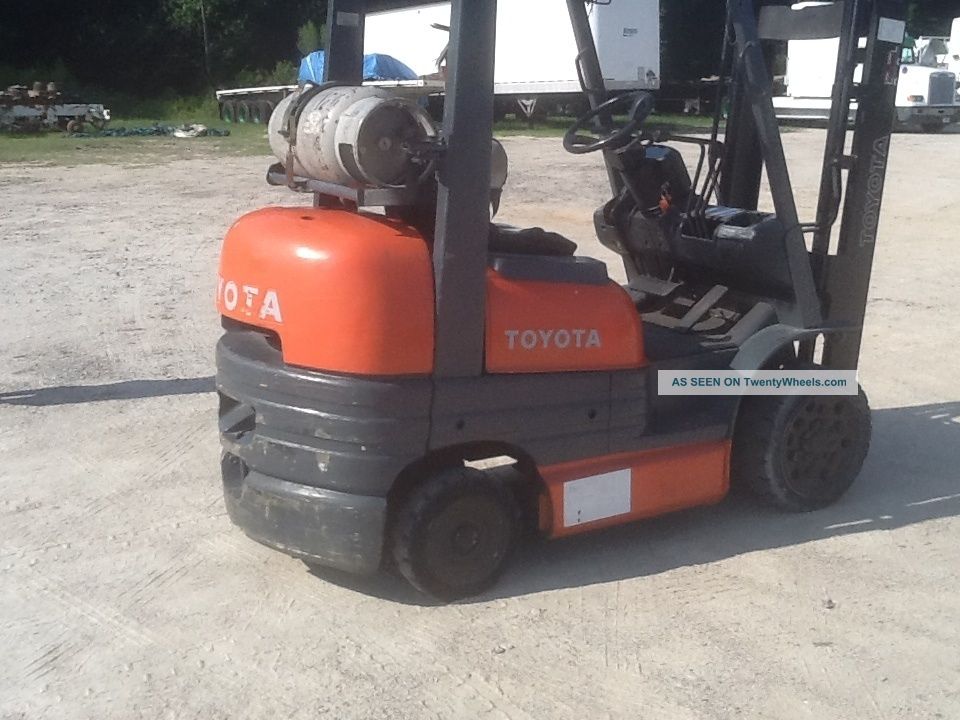Maximize Uptime: Expert Tips for Toyota Forklift Service and Repair
Maximize Uptime: Expert Tips for Toyota Forklift Service and Repair
Blog Article

Keeping your Toyota forklift in optimal working condition is essential for maximizing uptime in your operations. When your equipment runs smoothly, it leads to increased productivity and reduced costs, ultimately enhancing your bottom line. To achieve this, understanding the importance of regular service and repairs is crucial. A well-maintained forklift not only ensures safety but also prolongs the lifespan of your investment.
In this article, we will explore expert tips for Toyota forklift service and repair. By following these guidelines, you can prevent unforeseen breakdowns and keep your forklifts operating at peak performance. Whether you manage a small warehouse or a large shipping facility, having a proactive approach to maintenance can make all the difference in your operational efficiency.
Understanding Toyota Forklift Maintenance
Proper maintenance is crucial for the longevity and reliability of Toyota forklifts. Regular service helps identify potential issues before they escalate into costly repairs. It is essential to follow the manufacturer’s recommended maintenance schedule to ensure that all components, from the engine to the hydraulics, are functioning optimally.
Toyota Forklift Service Repair Manual PDF Download
Routine inspections and servicing can be broken down into daily, weekly, and monthly tasks. Daily checks often include inspecting fluid levels, brakes, and tire conditions, while weekly maintenance might involve a more in-depth look at the battery, electrical systems, and overall cleanliness of the forklift. Monthly servicing typically focuses on more complex systems and may require professional assistance.
Investing in proper training for operators is equally important. Well-trained operators not only use the equipment more effectively but are also more adept at identifying early signs of wear or malfunction. Regular maintenance combined with attentive operation significantly enhances the performance and lifespan of Toyota forklifts, reducing downtime and repair costs.
Common Repair Issues and Solutions
One of the most common repair issues with Toyota forklifts is electrical system failure. Symptoms can include malfunctioning lights, error codes, or complete power loss. To troubleshoot, first inspect the battery connections for corrosion and ensure the terminals are tight. It may also be necessary to check the fuses and wiring for any signs of damage. If these initial checks do not resolve the issue, a deeper dive into the wiring harness and electrical components may be required, and consulting a service manual can be very helpful.
Another frequent problem is hydraulic system leaks, which can lead to decreased lifting capacity and safety hazards. Common sources of leaks include hoses, seals, and fittings. A thorough inspection of the hydraulic lines is essential to locate the source of the leak. Once identified, replacing damaged hoses or seals can restore functionality. Additionally, ensure that the hydraulic fluid is at the correct level and that there are no blockages in the system, which can further complicate hydraulic performance.
Finally, tire wear and damage is a prevalent concern in forklift maintenance. Uneven tire wear can affect maneuverability and load stability. Regularly inspect tires for signs of wear, cuts, or air pressure issues. If tire wear is excessive, consider rotating the tires or replacing them altogether to ensure optimal performance. Keeping the tires properly inflated and monitoring their condition can greatly extend their lifespan and enhance the overall safety of your forklift operations.
Choosing the Right Service Provider
When it comes to Toyota forklift service repair, selecting the right service provider is crucial for ensuring optimal performance and longevity of your forklifts. Look for a provider with a solid reputation in the industry, as this can give you confidence in their expertise and reliability. Recommendations from other businesses can also guide your decision. A service provider with a long history of servicing Toyota forklifts often has the necessary experience and knowledge to address specific issues effectively.
Another important factor to consider is the availability of genuine Toyota parts. Using OEM (original equipment manufacturer) parts helps maintain the integrity and performance of your forklifts. Be sure to inquire about the service provider's access to genuine parts and whether they have a robust inventory. A provider committed to using OEM parts demonstrates their dedication to quality service and customer satisfaction.
Finally, assess the range of services offered by the provider. A comprehensive Toyota forklift service repair company should offer everything from routine maintenance to emergency repairs. This ensures that all your needs can be met without the hassle of coordinating with multiple vendors. Evaluate their response times and customer service practices, as these can significantly affect your overall experience and the uptime of your equipment.
Tips for Preventive Maintenance
Regularly inspecting your Toyota forklift is essential for maintaining optimal performance and preventing unexpected breakdowns. Begin by checking hydraulic fluid levels, replacing filters, and examining hoses for any signs of wear or leaks. A thorough visual inspection of the engine and battery areas can also help identify potential issues before they escalate into costly repairs.
Cleaning your forklift is another important aspect of preventive maintenance. Dust and debris can accumulate in vital areas such as the engine and electrical components, affecting performance and longevity. Establish a routine cleaning schedule to ensure that your forklift remains in top condition. Additionally, keep an eye on tire conditions and ensure they are properly inflated to maximize efficiency and safety.
Lastly, schedule regular professional service for your Toyota forklift to catch any potential issues early. Trained technicians can provide insights that may not be apparent during routine checks. Keeping a detailed service log will help track maintenance activities and identify patterns that could indicate recurring problems, ensuring that your forklift remains productive and reliable over time.
Report this page